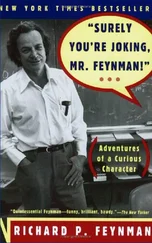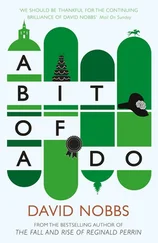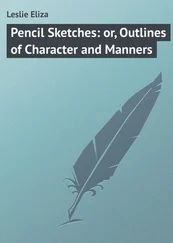I stood up and walked away and I never told anyone what she said, though I buried the words inside me where they lived on, like a splinter over which the skin has regrown.

Now Dirty Delhi. Ice cream in metal carts. Grapefruit, watermelon, cut open, surrounded by flies, packed in ice packed full of amoebic dysentery, held in the hands of boys with stunted nails at bus stops, holding them up to the window for a grubby note of exchange. Chunks of melting ice and the rind of fruit eaten by cows, dogs, rats, monkeys, rats the size of dogs. Exhaust fumes from the buses and the autos and the cars. From Indraprastha Power Station. Battered nimbu-pani carts, books on sale at the stop lights: Mein Kampf, Harry Potter, Who Moved My Cheese? Hijras with stubble flashing their comely eyes on the Ring Road near Raj Ghat, crows above the latticed balconies of Daryaganj, where they sell books on the pavements on Sundays and battered magazines, where they make juice in bright displays. Delhi, yes. Black bilgewater from every orifice.

The girl in the other tower fascinated my window dreams. Was she real? I couldn’t tell. I didn’t see her for a long time, didn’t even hear her, and then I did. Sometime in the brief autumn of that first year I saw her moon-face looking out of the open window at the sky. As soon as she appeared she turned back round, the way someone turns when they’re being called in a film. Then, like a new word you learn, I saw her often. And one day she was at the bottom of the tower, just as I was coming back from college. She was carrying a couple of saris in her arms, folded into their plastic sleeves, walking into my own block on some errand. It was strange to see her in the flesh and she didn’t recognize me. She was wearing shades, big black plastic ones on a frozen face. We walked into the elevator together and I half smiled. She gave a half-smile in return, but it was almost withering in disdain, or at least that was how it felt. I was tempted to speak but what would I say? She kept the shades on, was wearing blue jeans, a black sweater, very pale, quite plump, straight black hair. We rode up the elevator in silence until she got out at the fourth floor.
I met her another day and she recognized me then. We were in the car park and she offered me a lift. Where was I going? To college, I said. She said she’d take me some of the way.
We sat in a wary silence at first. Then without warning she began to speak, defiantly, almost scornfully, she said, I know you, you live in the other block across from me, I’ve seen you. I see you sometimes in the window. You always look so sad. Then she said, Guess what? Don’t you dare tell anyone. I’m going to run away. You’ll see soon enough. But don’t you dare tell anyone.
She tells me her story: her boyfriend loves her and she loves him, but he’s an Old Delhi Christian and the families will never agree, will not even meet. So they’re going to run away and start again, away from family, away from everything. They have a way out too. He’s a chef in one of the five-star hotels, nothing special yet, right at the bottom, but he has talent. He can chop faster than anyone she’s ever seen. And a chef can get work anywhere, that’s what he says. She says it’s all arranged. He knows an agent who specializes in these things. They’ll fly to Montreal. But before Montreal they’ll go to Nigeria, to Lagos — it’s a simple matter of passports, money, visas and bending the rules.
When I say nothing in return she looks at me with that bold eye of hers. You don’t believe me? Well, what do I care. As long as you keep your mouth shut. You better promise. I promise, and we drive the rest of the way in silence until she drops me off beyond the bridge.

He was there at twelve the next day, waiting as he said he would be, the engine ticking over, exhaust fumes paddling out over the scorched asphalt earth. No breeze in the sky, only the motionless blue, and the roads were all quite empty, stricken by the burning sun.
I pulled my car up behind his, sat for a moment, got out, walked to the passenger side, knocked on the window.
Behind the blacked-out windows, in the AC cool, there’s smoke around his head, curling in blue, the stereo turned up so loud you can hear it outside, playing Mozart of all things. He says it blows the cobwebs away.
Here he is with such a strange look on his face, fierce, almost tribal, caught unawares. Then a great smile breaks out, he opens the door and he asks if I want to go for a drive.
Inside, through the plastic blast of the AC, his car smells of cigarettes and aftershave. Lived in, a private domain, the inside of a brain. There are piles of books, computer journals, old copies of Crime & Detective , CD cases, junk food wrappers and printouts on the seats and on the floor. Throw them to the back, he says. Stuff them in the glove box, wherever, it doesn’t matter. He doesn’t apologize for the mess, doesn’t care. Doesn’t try to be proper. In the back of the car it looks like someone might have slept there. I ask half jokingly if he did and he says, No, not last night, but sometimes, when I’m too far gone. It’s good to wake up sometimes and not know where you are.
I still have my misgivings about going off like this, about being alone here with him. He could be anyone, he could take me somewhere, hurt me. But more than this I have misgivings about his face, and what this means, the implication of the step I’m about to take, beyond which at a certain point I cannot return. The question of what it will finally say about me.
We’re driving through Lodhi Colony, around Mehar Chand, on the way to Lajpat Nagar, skirting the top of Defence Colony. He knows all the shortcuts, the alleyways. He cuts through the middle lanes, through inside lanes hemmed in by houses with back walls that have no windows to see the garbage piles, through the veins and arteries, then out on to a familiar road to my delight. He takes pleasure in dissecting Delhi, carving it up like this for me. And suddenly, in this certainty of his, I don’t feel afraid. It is as if I’ve slipped into another world, driving through a city unfurling like a tapestry, listening to Mozart’s Piano Concerto no. 20 in D minor.
He asks how it was, getting home last night. I say I didn’t realize I was so drunk. He nods and smiles. And how was this Aunty of yours? Did you get into trouble with her? I say I slipped in while she was watching her soaps, managed to get to my room and shower, change my clothes, brush my teeth, but came out to find her sitting on my bed sniffing the air.
I can just imagine it, he says. And what then? What did you do?
I’d told her I had gone for a movie with friends. She said I should have called her if I knew I was going to be out late, I know how she feels about me driving home in the dark.
Yes Aunty, I know, I’m sorry. You’ve told me a hundred times before, I must call, or don’t even stay out at all, come back before the sun goes down. But I have to be out for college, and it’s rush hour early on, I’d be stuck in traffic for hours if I drove back then, so it’s better that I wait until the traffic dies. You don’t drive yourself, so you don’t understand.
She sighs and shakes her head and says, Oh, you know how I hate that car.
It’s true that Aunty hates the car. At the breakfast table she says she doesn’t like to think of me alone, being alone is a sure sign of trouble, it attracts attention, it’s a provocation to some. And what if I were to break down? What if there was an accident? What would happen then?
Читать дальше













